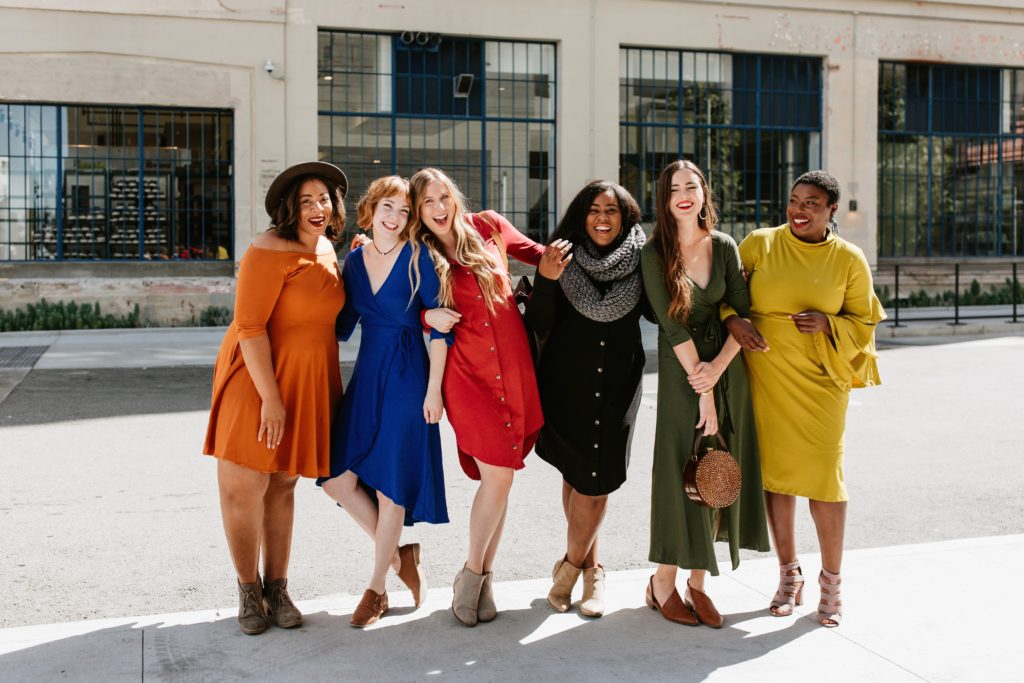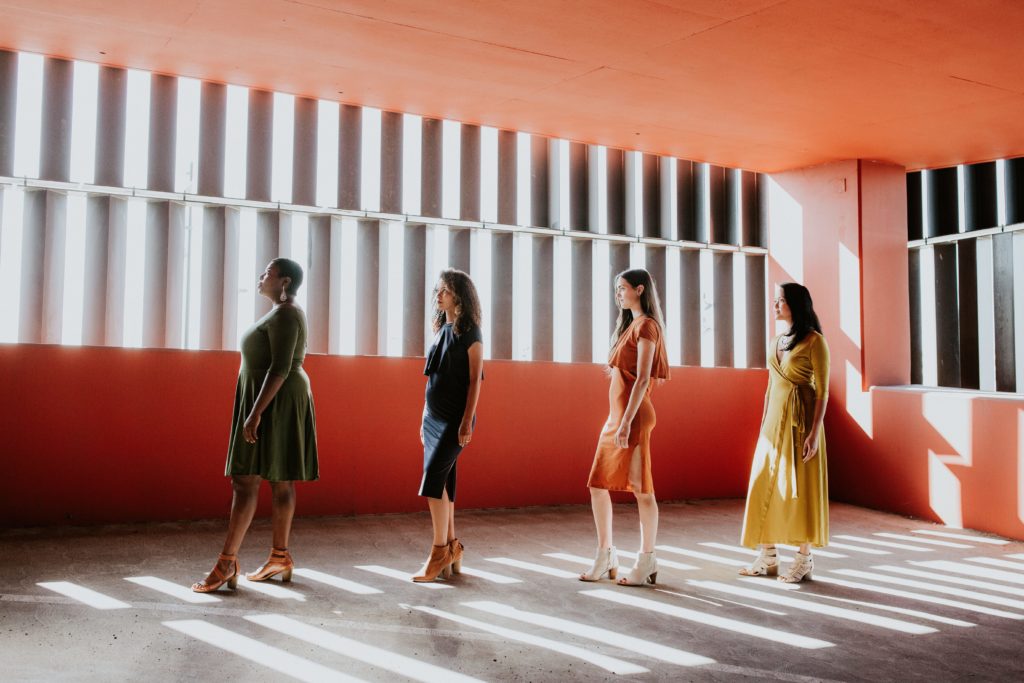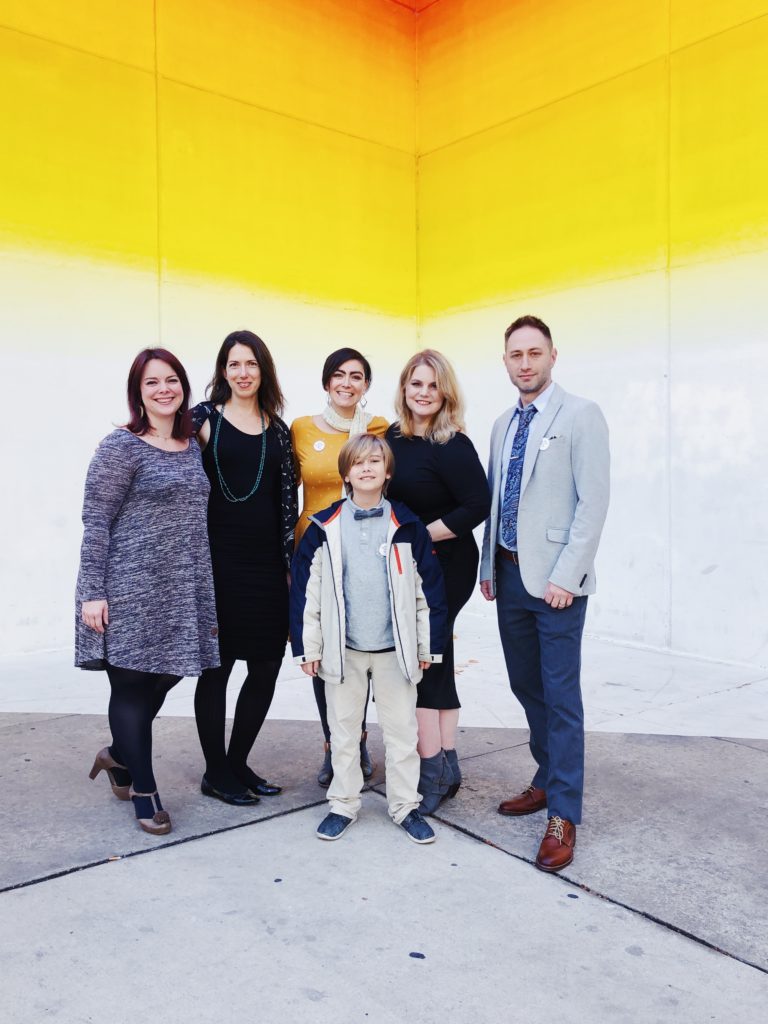Dressember combats trafficking with advocates throughout the world wearing dresses or ties every day in December.
By Abby Hopkins

By Lauren Scotti
When Blythe Hill challenged herself in 2009 to wear only dresses for the month of December, she never imagined her venture would create a worldwide anti-human-trafficking movement that would accrue about $7.5 million in six years.
After a few years of friends wanting to join in on the challenge, Hill recognized its appeal. In 2013, Hill combined the fashion venture with her heart for fighting human trafficking and Dressember was born.
Dressember is a nonprofit fighting human trafficking by encouraging advocates throughout the world to wear a dress or tie every day in December. Advocates raise awareness and fundraise in teams or as individuals and are encouraged to wear dresses that are ethically made and ethically sourced. To help participants find brands, Dressember created a directory of ethical brands after Hill recognized the overlap between trafficking and the fashion industry.
Of the products imported into G20 countries the most at risk of modern slavery, Global Slavery Index reports clothes contribute $127.7 billion annually. As of 2016, it is estimated 40 million people are in some form of modern slavery, and 71 percent of slaves are female.
For Hill, it’s personal.
“It wasn’t until a couple years in that I made the connection that the reason I am so passionate about this and feel such an unquenchable fire for this issue is because of my own experience with sexual abuse as a child,” she says.
She says standing up for these women and children has allowed her to stand up for herself too.
“It forces you to take inventory of your own identity and abuse in a really cool way,” Hill says. “How can I stand up and say the abuse that’s happening to millions of women and girls is wrong and not their fault if I don’t believe the same for myself?”
When friends, family and strangers get on board, Hill says it’s a powerful experience. Dressember has advocates in nearly 100 countries and partners with 15 anti-human-trafficking organizations throughout the world.

By Lauren Scotti
Beth Carroll is an advocate in Austin, joining the movement in 2014 after watching a friend participate. The following year, Carroll began a Dressember team, Dress Well, Do Good, to rally Austinites to join her in the challenge.
“It’s a really heavy issue, but what I really love about it is being able to encourage each other and cheer each other on,” Carroll says. “We’re very much collaboration over competition because we’re all working towards the same goal.”
Monetarily, the team’s goal this year is $65,000, which would fully fund nine rescue operations, 21 years of case management or vocational training for 72 teen survivors, according to Dressember.
Carroll alone has raised about $15,000 since her first year participating. A former ethical-fashion blogger, Carroll was already engaging in discussions about the connection between human trafficking and the fashion industry and says consumers too often neglect to consider where our clothes come from.
“We forget that there are people operating the sewing machines and we forget people are sewing buttons on our clothes,” Carroll says. “If you can buy a shirt for $5, why was that shirt $5? The cost of materials is more than $5, so, inevitably, that means somebody is paying for that cost. People are being taken advantage of in order to provide this insatiable desire for clothing and the next cool thing.”
One local brand combatting this labor exploitation is Noonday Collection. Noonday was created in 2010 after Founder Jessica Honegger encountered artisan producers in Uganda who made paper-bead jewelry. Honegger was raising money for adoption and decided to take back jewelry to Austin to sell to her friends. Like Hill, the successful idea led to the creation of a business. Now Noonday works in 15 different countries with more than 30 artisan business partners that employ about 4,500 artisans.

The model remains the same as it began, and now more than 2,000 women throughout the U.S. gather women in their individual communities to host trunk shows and sell items from the artisan partners.
Aimee Reed, director of production at Noonday, says the goal is providing dignified jobs and creating opportunities for artisan partners to have sustainable work.
“We want to create a marketplace for their beautiful pieces where women are empowered, children are cherished and everyone is connected,” Reed says.
Another Austinite working to empower vulnerable women worldwide is Sydney Sherman, who began faire.shop in December 2017. After travelling the world and coming face to face with extreme poverty, Sherman decided to create this online marketplace for ethically sourced items.
In February, Sherman met Monica Peraza, who founded Alegreea, a similar marketplace. With a shared mission of empowering women and contributing to eradicating poverty, the two banded together to expand their individual brands to create The Etho, an online marketplace similar to Etsy but for only ethical and sustainable brands.
“My goal is to have it to where people don’t have to choose between having something ethical or not,” Sherman says. “I still have to buy things that aren’t ethically produced, but it feels really bad. It literally feels like I’m buying blood, sweat and tears.”
Dressember is starting a global conversation and Noonday and The Etho, along with other socially conscious brands, are paving the way for this dream to be accomplished and for the fashion industry to empower rather than enslave.

